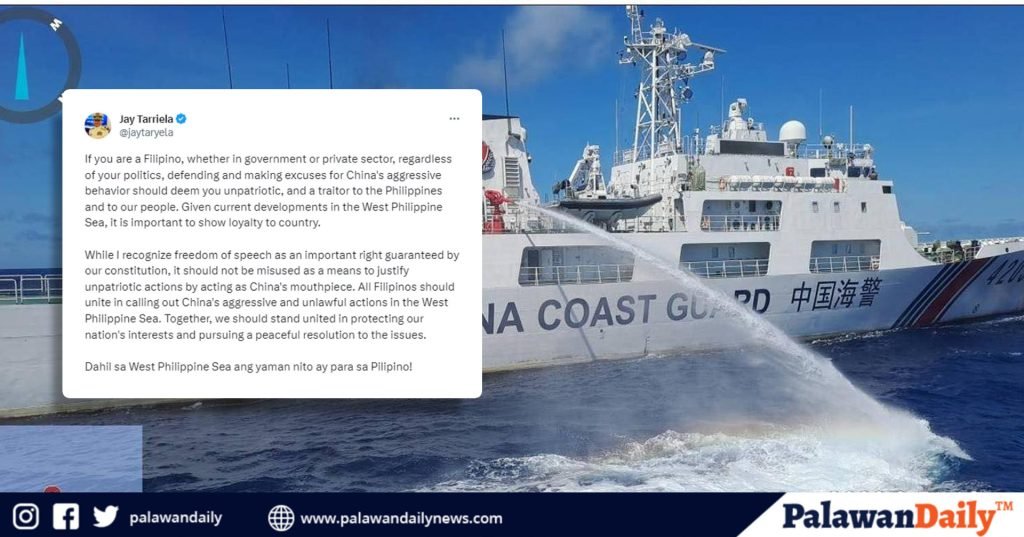In a decisive response to a concerning incident, the Philippine Coast Guard (PCG) has vehemently denounced the “illegal” and “dangerous” utilization of water cannons by the China Coast Guard (CCG) against PCG vessels engaged in escorting essential supply boats to the Armed Forces of the Philippines (AFP) personnel stationed in the West Philippine Sea.
The incident, which transpired on Saturday, August 5, has elicited widespread alarm over its potential to escalate tensions and violate established international norms.
In an official statement released on Sunday, the PCG provided detailed insight into the distressing occurrence. The PCG vessels were on a critical mission to deliver much-needed sustenance, including food, water, fuel, and vital supplies, to the military contingent stationed aboard the BRP Sierra Madre at the strategically significant Ayungin Shoal.
This targeted supply mission aimed to ensure the well-being and operational capabilities of the AFP personnel stationed in the region.
The aftermath of the water cannon attack had immediate ramifications, as the PCG reported that its second supply boat was unable to successfully complete the unloading of supplies. This outcome further underscores the gravity of the incident, potentially impacting the readiness and capabilities of the AFP personnel stationed at Ayungin Shoal.
Resounding support for the PCG’s condemnation of the water cannon attack came from the Armed Forces of the Philippines (AFP) itself, which issued a separate statement echoing concerns over the safety and security of personnel and assets in the West Philippine Sea. The AFP’s statement urged prudence and responsibility on the part of the China Coast Guard to prevent miscalculations or accidents that could endanger lives and destabilize the region.
PCG spokesperson for the West Philippine Sea, Commodore Jay Tarriela, offered a comprehensive analysis of the incident’s implications. “Such actions by the CCG not only disregarded the safety of the PCG crew and the supply boats but also violated international law,” Commodore Tarriela emphasized.
He cited a litany of international agreements that were allegedly breached by the water cannon attack, including the 1982 United Nations Convention on the Law of the Sea (UNCLOS), the 1972 Convention on the International Regulations for Preventing Collisions at Sea (COLREGS), and the 2016 Arbitral Award.
A core tenet of the PCG’s response is the call for restraint and adherence to international law. The Philippines’ sovereign rights, exclusive economic zone, and continental shelf were underlined as sacrosanct and non-negotiable.
The PCG directly addressed the China Coast Guard, insisting upon the imperative to refrain from impeding freedom of navigation and to promptly investigate and take appropriate action against those responsible for the incident.
Commodore Tarriela’s appeal to the China Coast Guard took on a particularly urgent tone as he implored the organization to honor its state obligations under UNCLOS, COLREGs, and other vital international maritime safety and security instruments.
“We ask that China Coast Guard, as an organization with a responsibility to observe state obligations, cease all illegal activities within the maritime zones of the Philippines,” Commodore Tarriela emphasized, invoking a shared commitment to international norms and stability.
